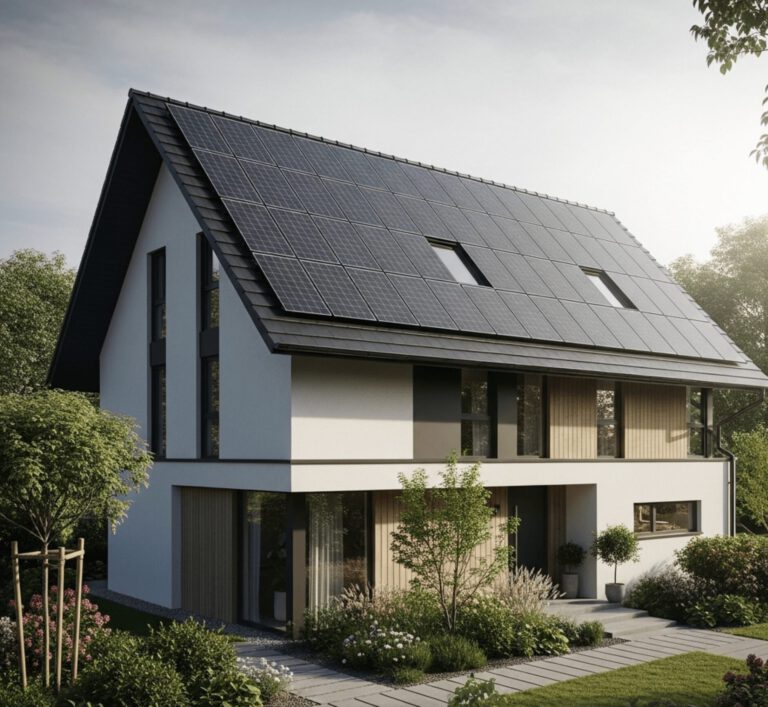Is a Career in Solar Future-Proof?
Viewing Germany's current solar subsidy debate within the context of global growth

Germany’s solar power journey, a cornerstone of its ambitious “Energiewende” (energy transition), has long been fueled by generous government subsidies. These incentives have empowered homeowners and businesses to embrace clean energy, making Germany a global leader in solar adoption. However, the landscape is shifting. The German government is now considering phasing out subsidies for new small-scale solar photovoltaic (PV) installations, sparking a debate about the future of solar in the country. This has created uncertainty for both homeowners considering a solar investment and the installers who serve them.
A Look Back: The Power of Subsidies
For over two decades, Germany’s Renewable Energy Sources Act (EEG) has been the driving force behind its solar boom. The EEG guaranteed a fixed, long-term feed-in tariff for solar power fed into the grid, providing a secure return on investment for early adopters. This policy, coupled with other incentives like VAT exemptions and low-interest loans, made solar an attractive and accessible option for a wide range of consumers. As a result, Germany has seen an explosion in solar installations, reaching an impressive 94.6 GW of capacity in the first quarter of 2025 (PVknowhow.com, August 15, 2025).
The Great Subsidy Debate
The current debate centers on whether these subsidies are still necessary. Germany’s Economy Minister, Katherina Reiche, has argued that new, small-scale PV systems are now profitable on their own and no longer require public funding (Clean Energy Wire, August 12, 2025). This perspective is shared by some energy economists who believe that subsidies should be directed towards more nascent renewable technologies where they can have a greater impact.
However, the solar industry has raised concerns about this proposal. The German solar industry federation (BSW-Solar) has warned that ending subsidies could stifle the expansion of solar power, as the financial security provided by the feed-in tariff is a crucial factor for many consumers and their financing banks (Power Technology, August 13, 2025). According to a BSW-Solar spokesperson, without this support, as many as four out of ten customers might be hesitant to invest in a solar power system.
What This Means:
For Homeowners: The potential phasing out of subsidies could mean a shift in the financial calculations for a home solar installation. While the upfront cost of solar has decreased significantly over the years, the removal of subsidies might extend the payback period. However, it’s important to remember that even without subsidies, solar can still be a wise investment. The rising cost of electricity from traditional sources, coupled with the ability to generate and consume your own power, can lead to significant long-term savings. Furthermore, new policies are empowering homeowners in 2025 with VAT exemptions on the purchase and installation of PV systems, as well as state-level programs that can cover a significant portion of the installation costs (Trientec, August 14, 2025).
For Installers: The potential decline in demand for residential solar systems is a significant concern for installers. A slowdown in the market could lead to increased competition and pressure on profit margins. However, there are also opportunities for installers to adapt and thrive in this changing landscape. By focusing on customer education, installers can help homeowners understand the long-term value of a solar investment, even without subsidies. Additionally, diversifying into related services, such as battery storage installation and energy efficiency consulting, can open up new revenue streams.
For Professionals: a potential slowdown in the residential market could temporarily soften the immediate demand for new installers and planners. It’s a valid concern for anyone considering entering the industry. However, looking at this short-term fluctuation without seeing the long-term trajectory of the energy transition would be a mistake. The case for a career in solar remains one of the most compelling in today’s economy. New governments can change direction, and policies that seem permanent today can become political footballs tomorrow. So, why would a career in solar be a safe bet when the political winds can change?
The Economics of the Global Future
A career in solar is future-proof for reasons that are largely insulated from national political shifts:
The Bottom Line: This is the most important factor. Solar is now the cheapest form of new electricity generation in history. It has reached grid parity. Businesses and homeowners will continue to adopt solar not for green credentials alone, but because it saves them money. No government can easily legislate against a technology that is economically superior. The free market itself has and will continue to drive the bulk of future demand.
The Mandate of Energy Security: The goal of reducing reliance on imported fossil fuels is now a matter of national and economic security for Europe and in particular Germany. This imperative is non-partisan. Ensuring a stable, homegrown energy supply is a core priority for any government that wants to maintain a stable economy and geopolitical independence.
Public and Corporate Demand: The push for clean energy is no longer just top-down from governments, nor is it regionally specific; it’s bottom-up from the public and from the corporate world. Major companies have their own sustainability targets and are investing billions in renewable energy to secure their power supply and meet consumer expectations. This creates a powerful, parallel market for solar development that is independent of government subsidies.
